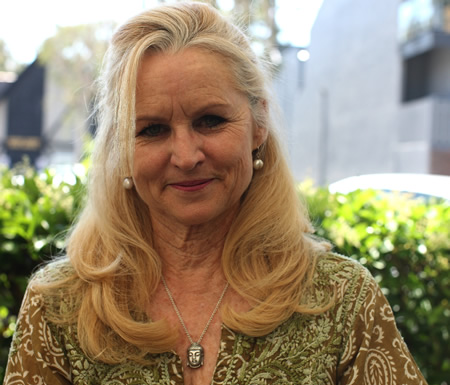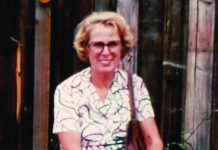By Carisa Carlton, Special to the Independent

A discussion by drug-abuse experts brought new awareness to an issue that could save children’s lives. Even so, the well-attended talk at the high school last week fell short of addressing complex questions underlying what causes children to use drugs, according to two other experts, Laguna Beach parents who lost their children to drug overdoses.
I met Judy Kelly at Zinc Café on what would have been her son’s 31st birthday. The pain that poured down Kelly’s cheeks as she described 25-year-old Tyeson’s death in 2006 of a heroin overdose is impossible to absorb, harder yet to accept.
Tyeson was a live-life-on-the-edge boy with a charismatic personality and a brilliant mind. In his youth, he had gotten into drugs: Tyeson began smoking marijuana at 13, taking heroin at 14. Tyeson had been in drug rehabilitation for his heroin addiction, but like so many who die of overdose, treatment failed.
Kelly tearfully admitted her divorce impacted her son who was only 3-years-old when she separated from her son’s father. “People don’t understand how one bad choice can keep impacting the family. Detachment is painful. Kids need to fill voids. They will do drugs to fill the voids. They will steal. Parents need to guide their children with examples and talk to them about every subject. No topic is taboo. It’s a matter of life or death,” she said.
After eight years of beyond-bearing reflection on the events leading to the death of her middle child, Kelly believes commitment to family cannot be a casual one. Parents must teach their children how to work through issues; they mimic what they see. “Preach it right through example,” she said.

Parents need to respect kids, and listen to them, Kelly said. But also she advises parents to bury their pride and admit their own mistakes. Kelly feels if she could’ve understood these key elements, her family may have experienced a different outcome.
Lenny Flaum and Nicole Brown-Flaum’s 19-year-old son, Taylor, an only child, died of a heroin overdose in 2012. At the time of Taylor’s death, Brown-Flaum was an admissions counselor at an Orange County drug rehabilitation center, and Flaum co-owned an outpatient clinic in Costa Mesa. Taylor had been a patient in several drug treatment facilities before his life vanished.
Flaum, who co-founded Laguna Beach Recovery with his wife in 2013, claims, “Right now, there is an epidemic of IV heroin addiction.”
Accounts of heroin addiction and death are mirrored in recent articles, including BBC News Magazine’s “The horrific toll of America’s heroin ‘epidemic’ ” this past Wednesday and in February’s New York Times, “Heroin’s Small-Town Toll, a Mother’s Grief.”
Flaum believes the underlying issues of drug abuse are social anxiety, ADD/ADHD, depression, and bipolar disorder in a world where it’s hard to live up to the expectations of others. “Perfection is an internal combustion,” he said.
Heroin erases the emotional and physical pain, Flaum said, but experience has taught him that most addicts also think differently. They are manipulative, self-centered, and selfish, he said. “When the world doesn’t do what they want them to do, they manipulate, they wear you down, and they are resentful. They have parents who gave in to them,” Flaum said.
The way to prevent children from using drugs is to not allow them to socialize with the wrong people, to stay aware of their emotional state and to monitor their behavior. “Kids need parents. A parent is not a friend. There needs to be rules to protect them,” Flaum said.





DRUGCRAFT
Viewing intoxication as a biological inevitability gives us a better understanding of how drug use differs from drug abuse. Such use is not necessarily immoral or pathological but natural. Much like sex, drug use for humans is a natural drive. Everyone has a need to alter their consciousness and they will do so even at their own peril… from sky diving to smoking “crack” cocaine. The challenge for society is to address this biologically based need to “alter consciousness” in safe, non-abusive ways that will provide people with the “peak experiences” they universally crave. Furthermore, there is a non-abusive code for “getting high” that can be learned so that people who drink or take other drugs do not end-up embarrassed , sick, dependent or dead.
http://www.amazon.com/American-Euphoria-Saying-Drugs-ebook/dp/B0053ZH1PY
Why is intoxication coaching necessary? Getting ‘high’ in our culture has been taboo since puritan pilgrim times and so very rarely is it a topic in polite conversation. It’s not discussed. It’s no wonder people call themselves Addicts as they strive for the high they seldom attain. But it’s not their fault. It’s cultural. They have not been educated in anything else but prohibition and total abstinence.
Very good article. I’m going through some of these issues
as well..